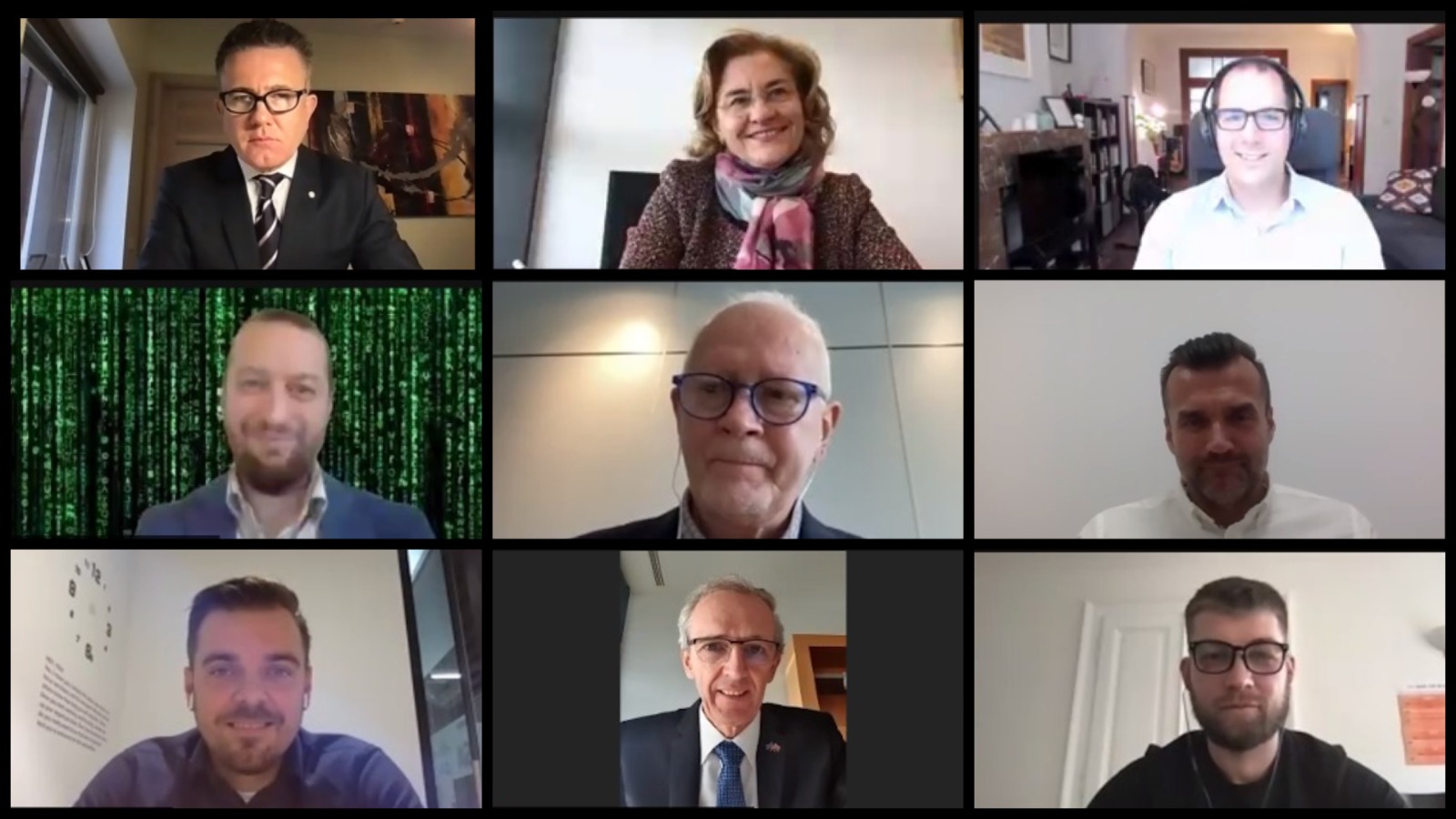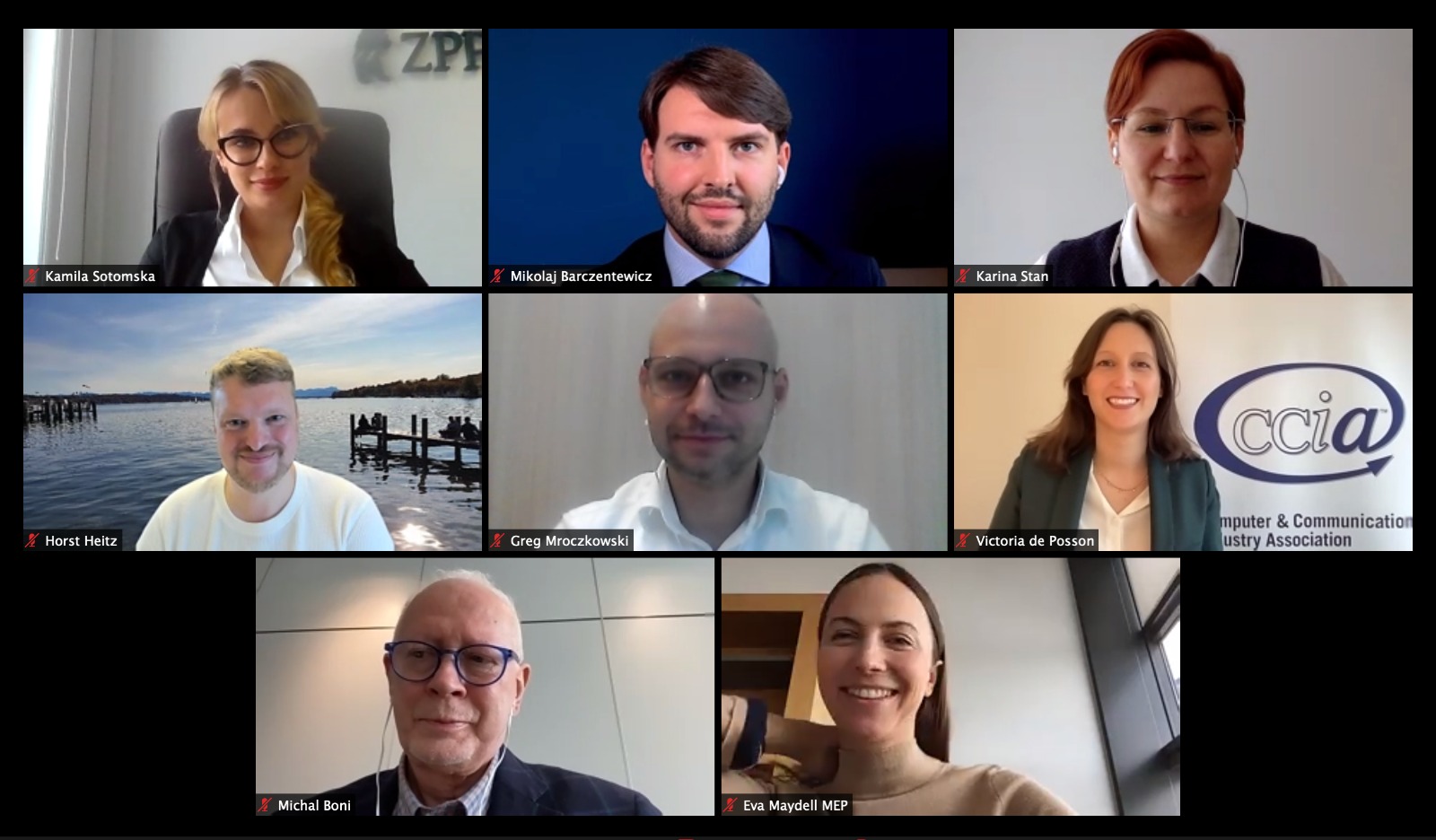SMEs Meet MEPs – Exchange on the DMA and DSA Central Eastern Europe


On Wednesday, October 20th, SME Connect premiered its series “SMEs Meet MEPs”, with a first episode dedicated to the DMA and the DSA in Central Eastern Europe.
The Panel on the DMA was hosted by Maria Grapini MEP, Vice-Chair IMCO Committee and SME Connect Board Member, and moderated by Michal Boni, First Minister of Digital Affairs of Poland (2011-2013), MEP 2014-2019, and SME Connect’s Special Advisor for Digitalization & AI. The panel was comprised of experts Carlo Stagnaro, Research & Studies Director, Istituto Bruno Leoni; Andreas Aktoudianakis, EU Digital Lead Policy Analyst, European Policy Centre, and industry stakeholders such as Virgilijus Dirma, Infobalt (Lithuania); Michal Kardos, SAPIE (Slovakia); Michal Kanownik, ZIPSEE (Poland), and David Cikanek, Expando Global (Czech Republic). Ivan Stefanec MEP, IMCO, ITRE & AIDA Committees, closed the DMA panel.
The Panel on the DSA was hosted by Eva Maydell MEP, ITRE, AIDA & ECON Committees, EPP Group Rapporteur for the DMA and DSA in the ECON Committee, and moderated by SME Connect’s own Horst Heitz. The panel was comprised of experts Victoria de Posson, Senior Public Policy Manager, CCIA Europe; Mikolaj Barczentewicz, Research Director, Law and Technology Hub, University of Surrey, and Research Associate, Centre for Technology and Global Affairs, University of Oxford, and industry stakeholders such as Kamila Sotomska, ZPP (Poland); Greg Mroczkowski, Director Public Policy, IAB Europe; Karina Stan, Head of Brussels Office, Developers Alliance.
The DMA panel focused on the general impact of DMA on the current digital environment and SMAs. There was a general agreement that the DMA proposal is not ideal in its current form. Specifically, Michal Kardos remarked the negative impact of hard regulation such as the DMA on entire innovation ecosystems, while Virgilijus Dirma stressed the fact that the DMA should not only focus on the primary goal of platform fairness, but also take into consideration other secondary goals such as user preference as well as privacy concerns.
Later in her welcome address to the DSA panel, MEP Eva Maydell echoed this sentiment by stating that the regulations’ aim is “not to kill platforms, but rather to make them more responsible and equitable”
Michal Kanownik specifically remarked the importance of digital and targeted advertising for SMEs, a perspective shared by other panelists later in the DSA panel. Greg Mroczowski, in fact, stated that the DSA and the GDPR shouldn’t be essentially overlapping regulations, as this would be counterproductive for SME growth and consumer reach. It’s important to see upcoming legislation such as the DMA and DSA as part of a bigger policy landscape and understand its interplay with already existing frameworks.
The DSA panel focused on the key principles of the DSA and how the current proposal may actually undermine its conception as a horizontal framework and the “country of origin principle”. At the core of the DSA, there are fundamental disagreements across Member States on what constitutes harmful or illegal content, which will inevitably impact the DSA enforcement across Europe. For example, Poland has drafted a proposal of the “country of destination principle” which would further contribute to the fragmentation of the digital single market, as Kamila Sotomska explained.
Ultimately, as remarked by Mikolaj Barczentewicz, “SMEs are also platform users.” In this regard, similarly, Victoria De Posson warned about spillover effects, also by stressing the importance of not making automated (monitoring) tools mandatory, as this would negatively impact SMEs.